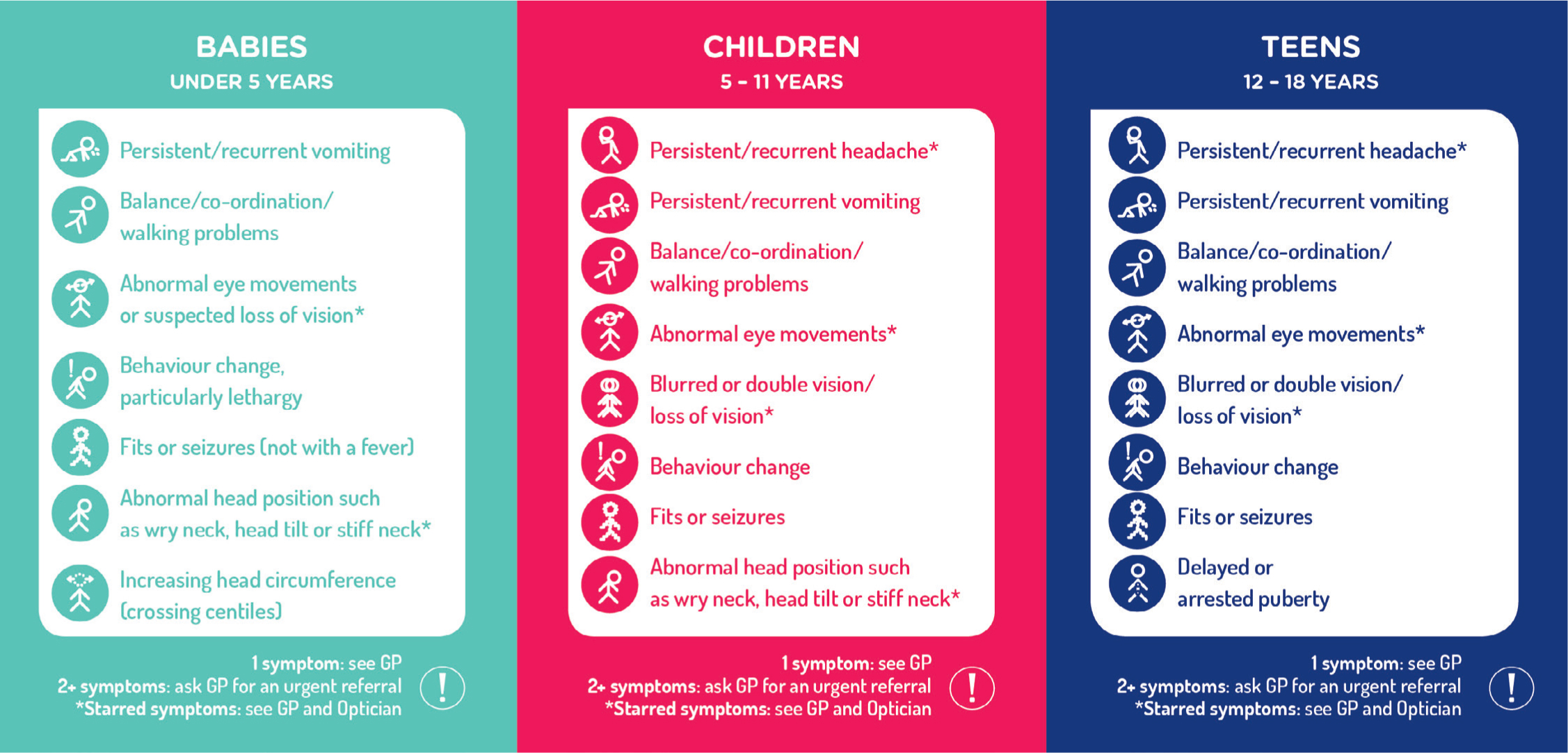Despite encouraging steps in early diagnosis over the last decade, the impact of brain tumours in children and young people remains devastating. While relatively rare, brain tumours are, in fact, the biggest cancer killer of children and adults under 40 in the UK. Around 500 children and young people are diagnosed with a primary brain tumour each year, and, unfortunately, around a quarter will die from the disease (The Brain Tumour Charity, 2021).
For those that do survive, the impacts can be incredibly debilitating and life long. Brain tumours remain the largest cause of preventable or treatable blindness in children, and those diagnosed are 10 times more likely to experience a long-term disability than healthy children.
Governments and the NHS across the UK have set out bold ambitions to improve cancer survival and to deliver world-class cancer care in the coming years – and continued progress in early diagnosis is a fundamental principle of these plans.
‘…brain tumours are, in fact, the biggest cancer killer of children and adults under 40 in the UK. Around 500 children and young people are diagnosed with a primary brain tumour each year, and, unfortunately, around a quarter will die…’
But early detection remains a critical and unique challenge in brain tumours. The signs can sometimes be vague and many of the most common symptoms, such as persistent headaches or co-ordination problems, can have a variety of other causes, which may or may not be serious.
It is also estimated that 58% of children aged 0–14 years old who develop a high-grade brain tumour are diagnosed as an emergency (HeadSmart, 2021). While this may be unavoidable in some cases because of the severe nature of symptoms or their very sudden onset, everything possible must be done to reduce these figures and any opportunities to diagnose cancers earlier must be taken.
That is why The Brain Tumour Charity launched HeadSmart, with the goal of reducing the average diagnosis time for brain tumours in children to 4 weeks or less from the onset of symptoms.
Following major research funded by the charity's supporters in 2006 that identified the underlying causes of delays in diagnosis and the common signs and symptoms by age group, and the subsequent development of new clinical guidance, there was an opportunity to enable change.
Launched in partnership with the Children's Brain Tumour Research Centre at the University of Nottingham and the Royal College of Paediatrics and Child Health, the HeadSmart campaign aimed to raise awareness of the signs and symptoms and to support and equip parents, healthcare professionals and the public to recognise them as soon as possible.
The most typical symptoms of brain tumours in children and young people can include:
- Persistent or recurring vomiting
- Persistent or recurring headaches
- Balance/co-ordination or walking problems
- Blurred or double vision
- Abnormal eye movements or head position
- Fits or seizures
- Behavioural changes, especially tiredness
- Delayed puberty in teenagers.
Showing one of these symptoms does not mean a child definitely has a brain tumour. But The Brain Tumour Charity would encourage any child experiencing symptoms that are unusual for them — and particularly if they experience a combination of symptoms or if these signs are persistent or unexplained — to be checked by a GP.
Since its launch in 2011, the HeadSmart campaign has helped cut the average diagnosis time for children with brain tumours in the UK from 13 weeks down to 6.5 (The Brain Tumour Charity, 2018). This is incredible progress, which has been guided by world-class evidence, and driven by the many small actions of the community, including distributing symptom cards and posters or writing to MPs, and achieved by families affected, healthcare professionals and the public working together.
 Knowing the signs of a brain tumour can be important for enabling an early diagnosis.
Knowing the signs of a brain tumour can be important for enabling an early diagnosis.
But we cannot afford to take our foot off the pedal on early diagnosis. The charity's 2018 Impact Report found that, since 2015, we had increased awareness of HeadSmart among parents from 20% to 28% — but we need to go further and faster towards our goal to reduce diagnosis time to under 4 weeks, in line with NHS targets and other countries around the world (The Brain Tumour Charity, 2018).
We need to keep sharing the signs and symptoms, ensuring parents, families and everyone involved in the provision of healthcare for children has the information and support they need to recognise a possible brain tumour.
If you would like to join the campaign, or hear more about how The Brain Tumour Charity can support you or your services, we would love to hear from you. Identifying brain tumours early reduces the chance of a child developing long-term disabilities, and could ultimately save their life.
FURTHER INFORMATION
Know the symptoms. If you would like to read more about HeadSmart or download symptoms cards or posters, a clinical reference guide or healthcare resources, please visit headsmart.org.uk
The Brain Tumour Charity
The Brain Tumour Charity provides support to people affected by brain tumours and to parents or teenagers who are concerned they or their child may have a brain tumour. You can call The Brain Tumour Charity's Support and Info Line, Monday to Friday, 9am–5pm on 0808 800 0004, or email support@thebraintumourcharity.org

